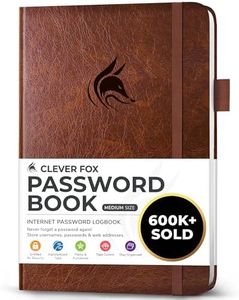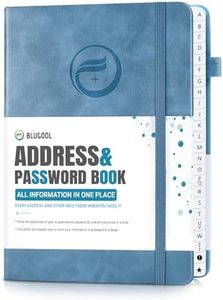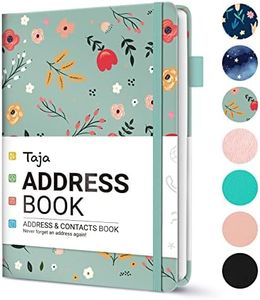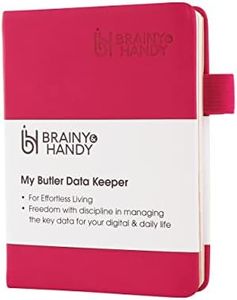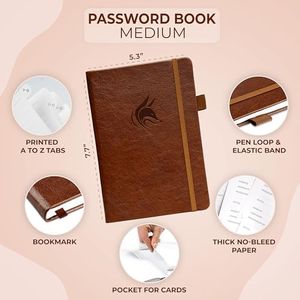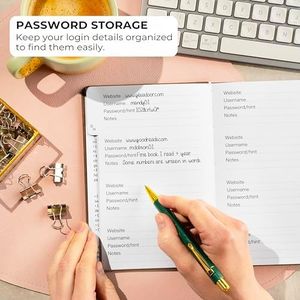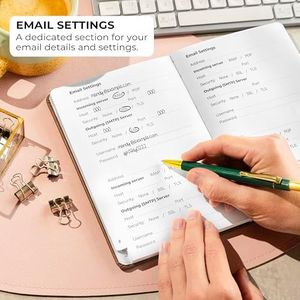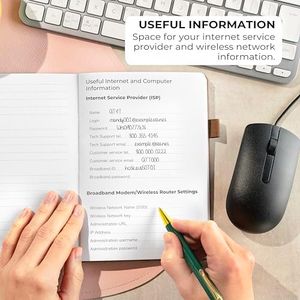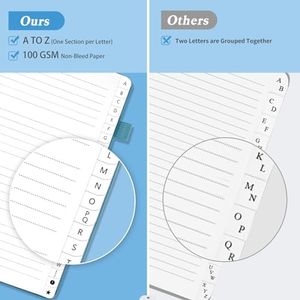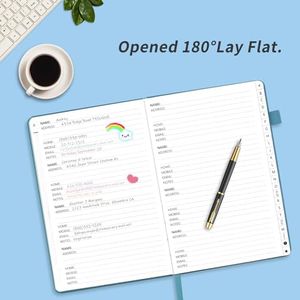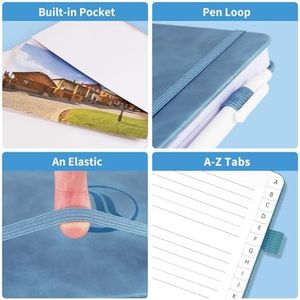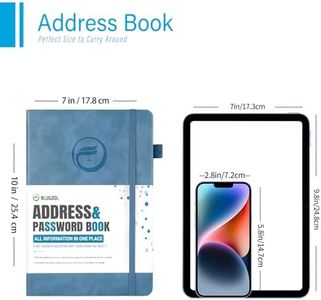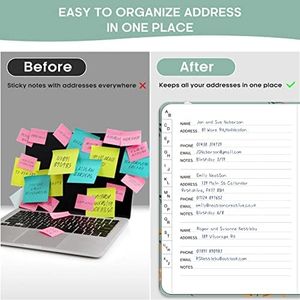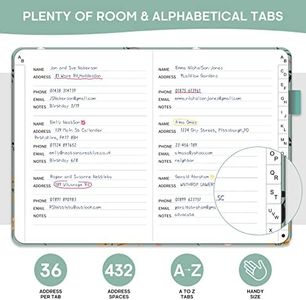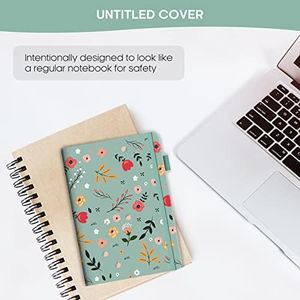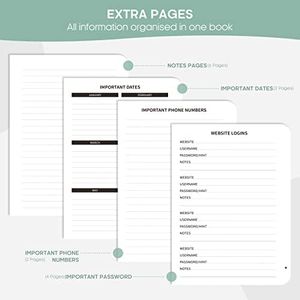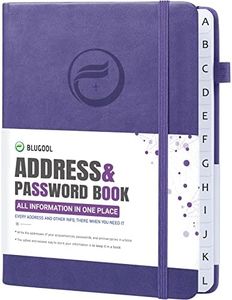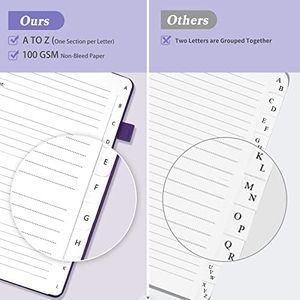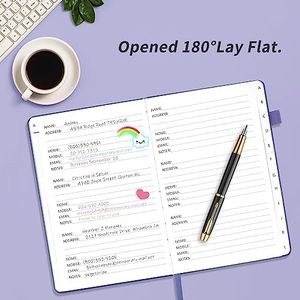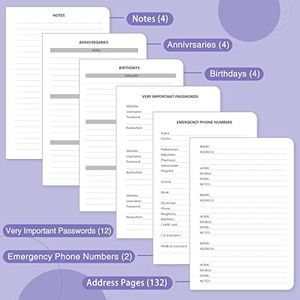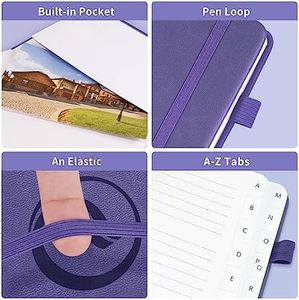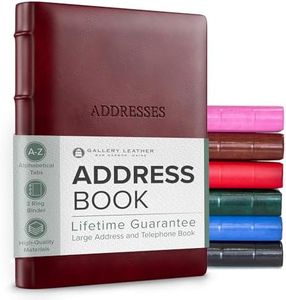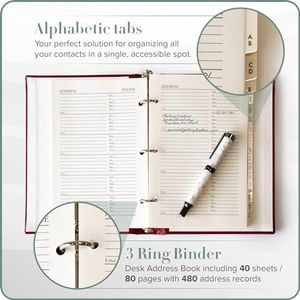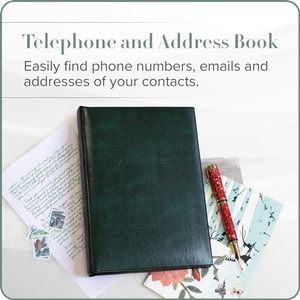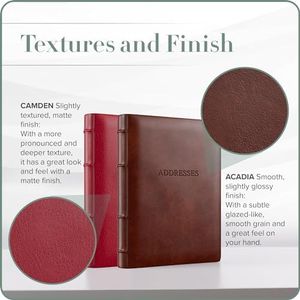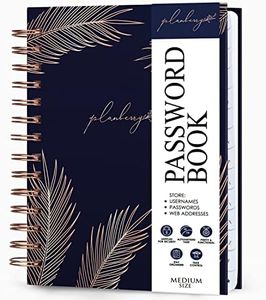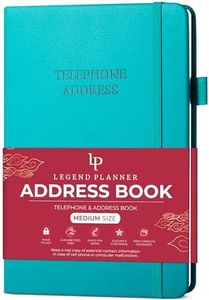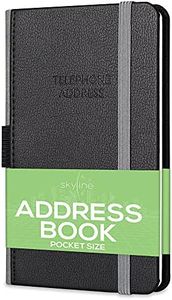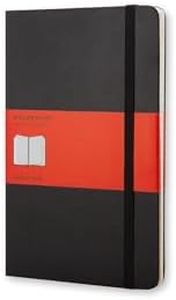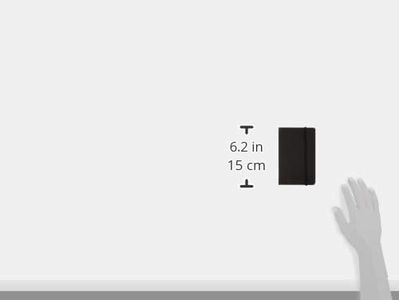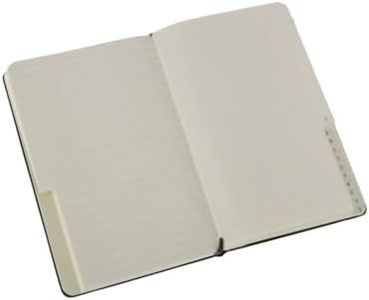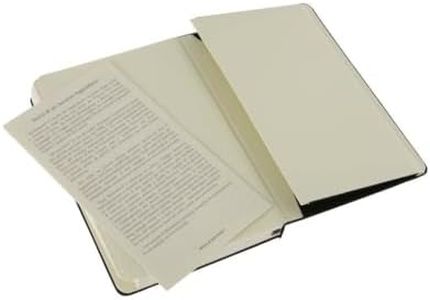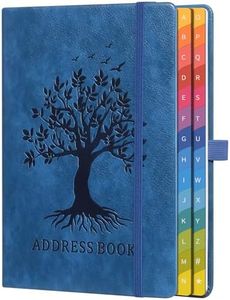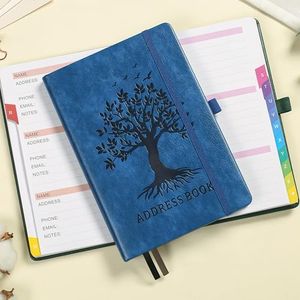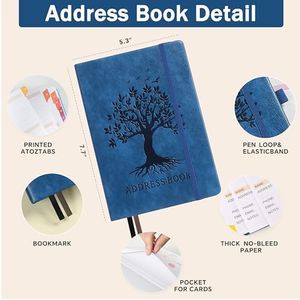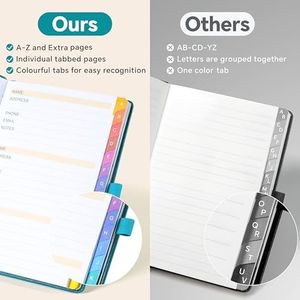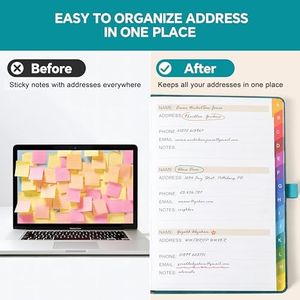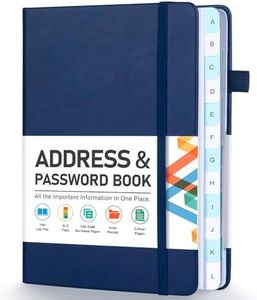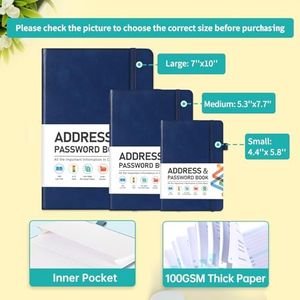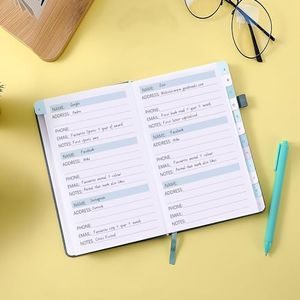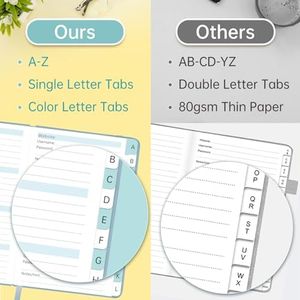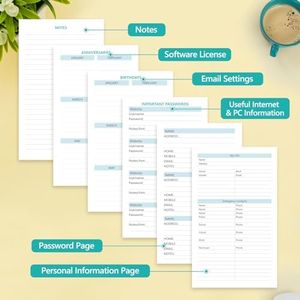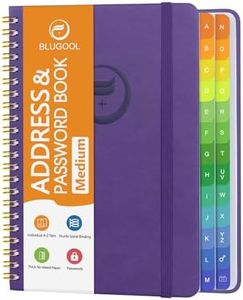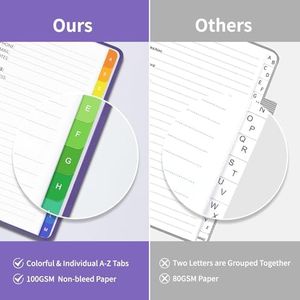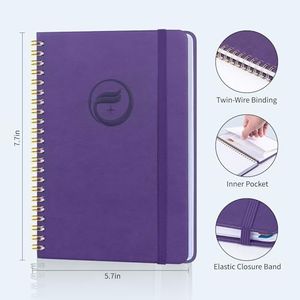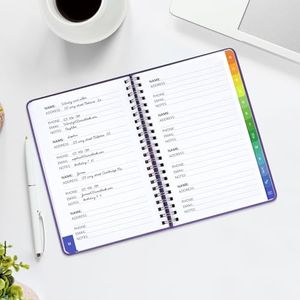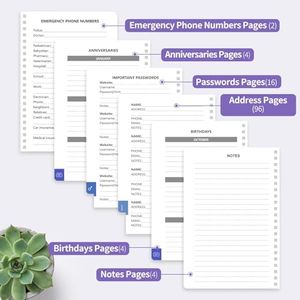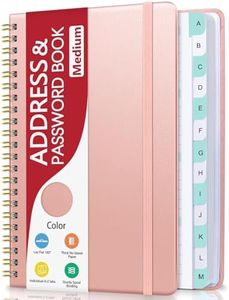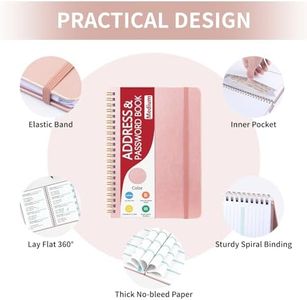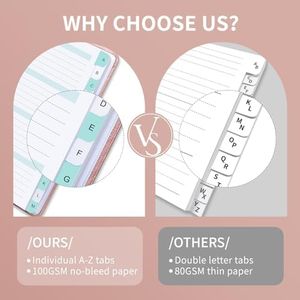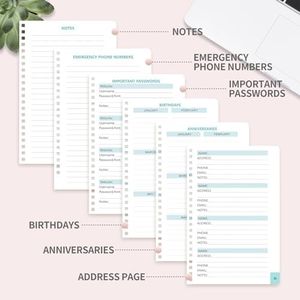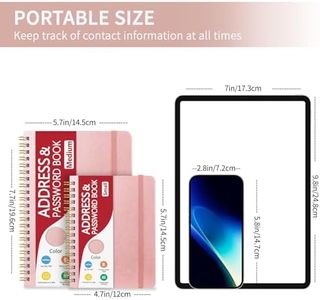10 Best Address Books 2025 in the United States
Winner
Clever Fox Password Book with alphabetical tabs. Internet Address Organizer Logbook. Medium Password Keeper for Website Logins (Brown)
The Clever Fox Password Book is designed to help you keep track of your passwords and other computer information in an organized manner. Its significant strength lies in the alphabetical A-Z tabs, which simplify the process of finding any password you need swiftly. Besides, it has dedicated sections for important passwords, wireless and email settings, software license information, and additional notes, adding to its practicality.
Most important from
36921 reviews
Address Book with Alphabetical Tabs, Large Hardcover Password Book, Address Organizer Keep Track of Phone Numbers, Special Days, Birthdays, Anniversaries and Notes(7″x 10″, Blue Grey)
This Address Book with Alphabetical Tabs by Blugool is designed to help you stay organized. Its large hardcover format (7x10 inches) makes it durable and easy to handle. The book features A-Z alphabetical tabs, with one section for each letter, making it simple to find contacts quickly. The 132 pages of 100 GSM no-bleed paper ensure that ink doesn't bleed through, offering a premium writing experience.
Most important from
2743 reviews
Taja Address Book with Alphabetical Tabs,Hardcover Address Book Large Print for Record Contacts, Small Address Book to Store All Your Important Informations in One Place - Little Fortune
The Taja Address Book is designed for organized information management, allowing users to store addresses, phone numbers, emails, and notes in one convenient place. The alphabetical tabs make it easy to access and look up contact details quickly, enhancing its user-friendliness for everyday use.
Most important from
1804 reviews
Top 10 Best Address Books 2025 in the United States
Winner
9.7 score
Clever Fox Password Book with alphabetical tabs. Internet Address Organizer Logbook. Medium Password Keeper for Website Logins (Brown)
Clever Fox Password Book with alphabetical tabs. Internet Address Organizer Logbook. Medium Password Keeper for Website Logins (Brown)
Chosen by 1415 this week
Address Book with Alphabetical Tabs, Large Hardcover Password Book, Address Organizer Keep Track of Phone Numbers, Special Days, Birthdays, Anniversaries and Notes(7″x 10″, Blue Grey)
Address Book with Alphabetical Tabs, Large Hardcover Password Book, Address Organizer Keep Track of Phone Numbers, Special Days, Birthdays, Anniversaries and Notes(7″x 10″, Blue Grey)
Taja Address Book with Alphabetical Tabs,Hardcover Address Book Large Print for Record Contacts, Small Address Book to Store All Your Important Informations in One Place - Little Fortune
Taja Address Book with Alphabetical Tabs,Hardcover Address Book Large Print for Record Contacts, Small Address Book to Store All Your Important Informations in One Place - Little Fortune
Gallery Leather Large Address Book with Alphabetical Tabs up to 480 records, Leather Notebook Hardcover, Telephone and Address Books - 9x7, Desk Address, Acadia Burgundy
Gallery Leather Large Address Book with Alphabetical Tabs up to 480 records, Leather Notebook Hardcover, Telephone and Address Books - 9x7, Desk Address, Acadia Burgundy
7.1 score
Recommended lists
Our technology thoroughly searches through the online shopping world, reviewing hundreds of sites. We then process and analyze this information, updating in real-time to bring you the latest top-rated products. This way, you always get the best and most current options available.

